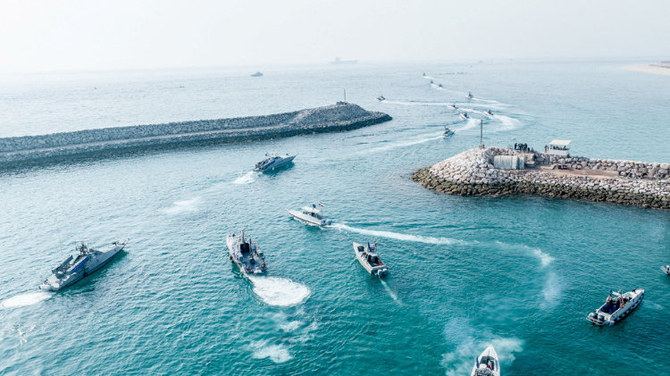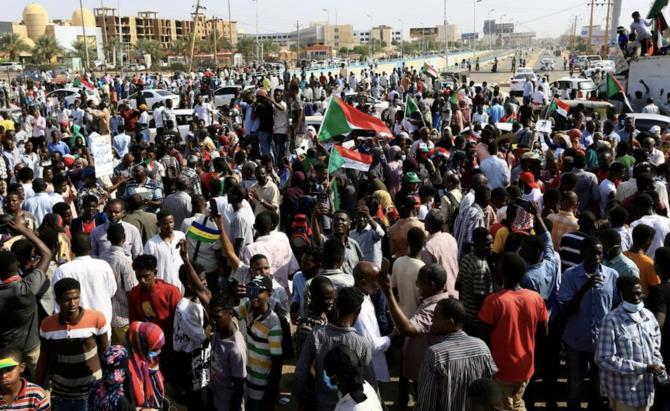
The Middle East is experiencing another shift in its diplomatic landscape, highlighted by the Iran-Saudi Arabia rapprochement that illustrates the normalization of Iran’s regional role.
Syria, a key ally of Iran, is also heading toward normalization with readmission to the Arab League, despite being responsible for the deaths of around 300,000 civilians. While some may view deescalation positively in any form, we must be cautious of enabling Iran’s continued international terrorism.
An extensive study on Iran in the Americas published by Arab News Research & Studies concluded that countries in the Middle East and beyond must remain vigilant while pursuing reconciliation talks with Iran, and must not turn a blind eye to the darker aspect of Tehran’s geopolitical operations — represented by the Islamic Revolutionary Guard Corps and its proxy organizations, whose influence extends far beyond their immediate neighborhood in the Near East. In essence, do not expect Iran to change its fundamental ideological goals.
Since the 1979 revolution, Iran has consistently adhered to an ambitious and persistent ideology. This ideology aims to undermine the postwar international settlement, defend Shi’ite Islam, become a beacon for the world’s 1.9 billion Muslims, and establish itself as the dominant regional power.
The US has been actively involved in curbing Iranian resources through its strategy with regional allies such as Saudi Arabia. By forcing Iran to engage in stalemates in which the US has the advantage, the West aims to limit Iran’s resources available for terrorism, unconventional warfare, and cyberattacks against the US, Israel, and NATO allies. Conversely, a weakening of US and allied resolve and appeasement toward Iran will create a stabilized environment for Tehran, allowing it to renew its offensive unconventional warfare abroad. Recent developments show regional partners thawing relations with Tehran, leading to a potential emboldening of Iranian offensives.
Since the 1979 revolution, Iran has consistently adhered to an ambitious and persistent ideology.
Dr. Azeem Ibrahim
Understanding the operations of the Revolutionary Guard is crucial, particularly its activities in Latin America. These operations are supported by extensive criminal networks involved in drug trafficking, which generate significant revenues for the Guard’s militant and terrorist activities, as well as those of its proxies such as Hezbollah. The narcotics network serves multiple purposes, including revenue generation, extending influence, solidifying power relationships, and fostering political and social destabilization through drug addiction.
Acts of violence, such as the bombings targeting the Israeli embassy in Buenos Aires in 1992 and the Argentine Israeli Mutual Association building in 1994, highlight Iran’s ability to reach its enemies on any continent. The exploitation of diplomatic immunity played a crucial role in Hezbollah’s subversive and antisemitic agenda, exemplified by figures such as Mohsen Rabbani, who used his position as cultural attaché at the Iranian embassy in Buenos Aires to orchestrate intelligence operations leading to the Mutual Association attack. Iran’s pervasive criminal network and front companies facilitated the smuggling of explosives and other materials, while political assassinations furthered their strategy of eliminating critics and instilling fear.
Recent attempts on the lives of individuals such as US national security adviser John Bolton, Iranian dissident Masih Alinejad, Secretary of State Mike Pompeo, and US administration aide Brian Hook, demonstrate the true danger posed by Iran. The regime"s actions must not be allowed to continue, and pressure must be maintained. Regional allies, including Saudi Arabia and the UAE, must remain resolute as well. Allowing this process to continue would enable Iran to gain more influence in the Sunni Arab world and increase the future cost of sanctions for US allies. The US must prioritize global security risks and remind itself and its allies of the potential consequences they invite.
Iran’s campaign is a decades-long effort by a revisionist power to reorder the world.
Dr. Azeem Ibrahim
Since 1979 Iran has mounted a serious campaign for regional and global domination. It has done so through political and diplomatic campaigning, through violence, and through criminality — all designed to increase its political influence and power, to minimise the power of rivals, and to defeat the broader policy of the US.
This is a serious threat not only to stability and the rule of law, but the success of countries invested in the peace and security of the Americas. Above all, it is a campaign aimed at defeating the US within its own region: a constant campaign of subversion that no American administration ought to consider it reasonable to downplay or to ignore.
As Iran seeks to consolidate the growth of its Middle Eastern regional campaigns, of proxy warfare, arms shipments, the growth of a narco state in the parts of Syria still held by the Assad regime — underwritten recently with internationally focused diplomacy – it has accompanied all of this with campaigns in the Americas.
There have been campaigns to kill and to intimidate opponents; campaigns to undermine the social fabric with drugs and weapons trafficking; campaigns to subvert diplomacy and policymaking and politics in New York and Washington; and campaigns to convince especially the political leaders of the US that Iran is not in fact a threat or an enemy, and to convince American leaders to allow Iran increasing regional domination in the Middle East and its continued pursuit of a functioning nuclear weapons program.
Iran’s campaign is a decades-long effort by a revisionist power to reorder the world. It is not bound by geography, and stretches out through criminal and terrorist networks to touch every continent. American politicians and the US public broadly accept that Iranian revisionism is a threat to global peace. What they may remain unaware of is the extent to which Iranian influence operations, drug trafficking and criminal violence stand to affect the US itself and American cities, citizens and residents.
• Dr. Azeem Ibrahim is director of special initiatives at the New Lines Institute for Strategy and Policy in Washington, DC, and the author of “The Rohingyas: Inside Myanmar’s Genocide” (Hurst, 2017).
Twitter: @AzeemIbrahim












